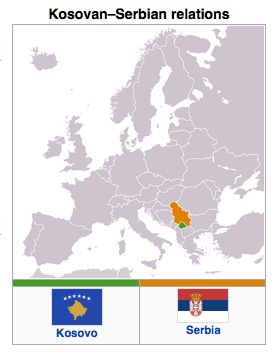EU Investigators To Examine Kosovo Organ Testimony
By Marija Ristic
At their next meeting with Serbian prosecutors EU investigators will consider whether to examine an unnamed witness who claims he removed a Serbian prisoner’s heart – which was then handed to a client at Tirana airport.
A member of the EU special investigation team for the Kosovo organ trafficking case said Serbian prosecutors had informed the team leader, Clint Williamson, about the witness whose sensational claims of having removed a prisoner’s heart were aired on Monday in Serbia.

“As the investigation is ongoing, any comments related to the case and possible eyewitness can be harmful,” the source said.
“On our next visit to Belgrade, we will discuss this with Serbian colleagues and see if this testimony is relevant and how to proceed further on the case,” the same source added.
The witness, a former fighter in the Kosovo Liberation Army, KLA, told the Serbian public broadcaster, RTS, that he had removed a prisoner’s heart intended for the black market in organs during the 1990s Kosovo conflict.
“They gave me a scalpel. I put my left hand on his chest and began cutting. When I got near the bottom (of the ribs), the blood started pouring out,” the witness said.. His face was not shown and his voice was distorted.
“As soon as I started cutting, he began screaming not to kill him and then he lost consciousness. I don’t know if he fainted or died,” he said.
The witness said he had been trained by doctors to remove the heart from a prisoner at an undisclosed location.
“He [a doctor] told me what I should do on the body … to make a cut from a throat to the end of ribs,” the witness recalled.
“When I came closer to him he tried to get away but they tied him up more. He began crying, begging, ‘God, do not slaughter me, do not kill me!'” the witness said.
“When I finished the first cut, I was told to make another one, a cross section … The third line the doctor did himself, seeing that my hand was shaking. He told me not to worry,” the witness said.
“We cut the veins and when I took the heart, it was still beating … I put it in the box,” he said.
Serbian prosecutors say that the victim was a Serbian prisoner, and the operation had been carried out near the northern Albanian town of Kukes.
The heart was then allegedly taken to the airport in the Albanian capital, Tirana, where the the KLA men, including the witness, allegedly met several Albanian army officials.
The box was then given to a “foreigner” who came out of a small private plane with a Turkish flag, the witness said.
One of the Serbian prosecutors told Balkan Insight that the testimony would not necessarily expedite a trial.
“Serbia is currently investigating the case, but as all suspects are in Kosovo, where Serbia has no power to arrest anyone, it is only possible now to try them in absentia,” he said.
Serbia and Kosovo have no extradition treaty, since Serbia does not recognise Kosovo’s independence, and there is also no agreement between Serbia and the UN and EU missions in Kosovo, UNMIK or EULEX, regarding the extradition of suspected criminals.
Williamson said he believes that the organ trafficking case will be forwarded to international courts and international judges.
“We are part of the EULEX justice system so maybe the trial will be conducted in Kosovo, by international judges. A special court may be formed just for this purpose,” Williamson said to Tanjug news agency.
The investigation into organ harvesting follows the release of a report by Dick Marty, the human rights rapporteur at the Council of Europe, in December 2010.
This linked senior former KLA fighters, including Kosovo’s Prime Minister, Hashim Thaci, to organised crime and accused them of having harvested the organs of Serbian prisoners and others in Albania in the Kosovo war.
Kosovo and Albania have denied the allegations but have agreed to participate in the international investigation into the claims.
The head of Serbia’s Office for Kosovo and Metohija, Aleksandar Vulin, said that Serbia now needs to protect the eyewitness in the upcoming months, as witnesses to KLA crimes have disappeared or have been killed in the past.
He said that this had occurred in the case of Ramush Haradinaj, former leader of the KLA and Hague tribunal defendant.
“Some [witnesses] were killed in Kosovo, some in Montenegro and some in the EU…Also a number of evidences related to organ trafficking cases have disappeared,” Vulin told Belgrade’s B92 station.
Kosovo officials said the sudden production of the alleged witness was an obvious attempt by Serbia to derail Kosovo’s independence celebrations.
“The timing of the launch of this news – one day before the end of supervised independence for Kosovo – shows that this is an attempt by pro-Milosevic forces in Serbia to blacken this day and this historical event for Kosovo,” Enver Hoxhaj, Kosovo’s Foreign Minister, said.
He was referring to the decision of the International Steering Group – a group of 25 nations – to terminate international supervision of Kosovo four years after the former Serbian province declared independence.
